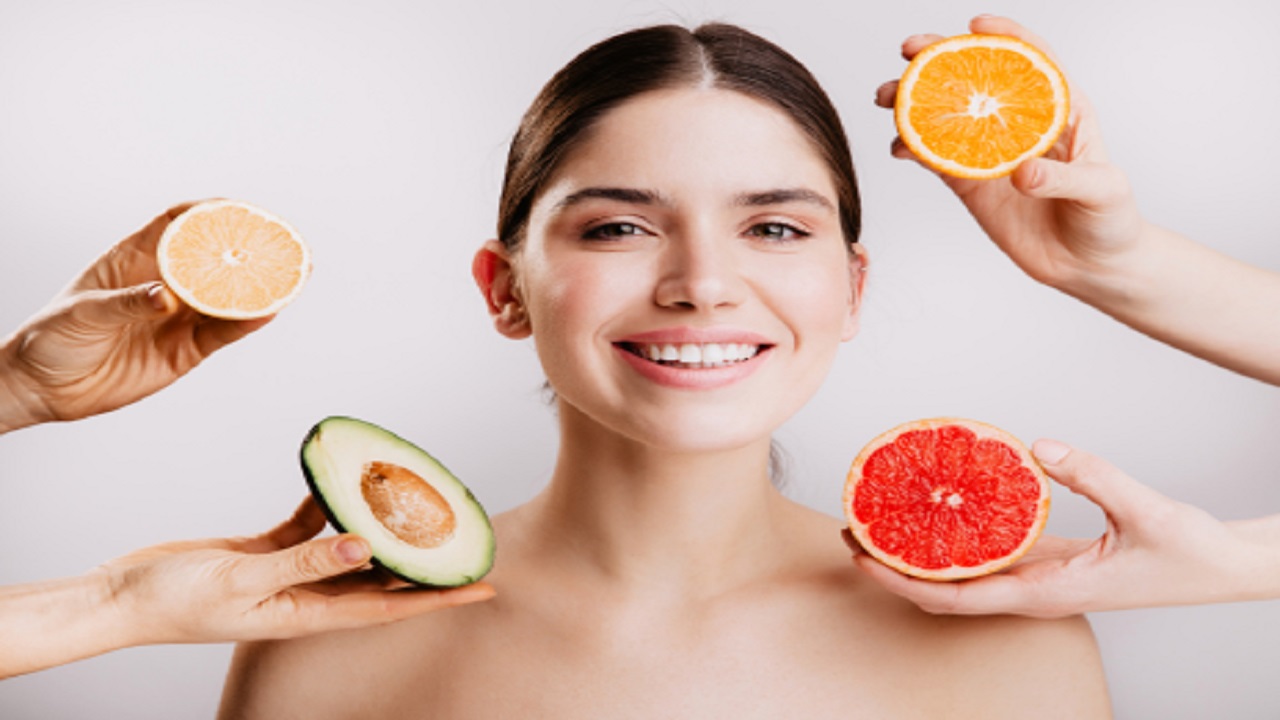Food is the basic need of life, and it has an impact on the skin. Your food preferences can make your skin look better or worse. Much research has been conducted to state that vegetables and fruit intake can make your skin fresh. These food preferences not only keep your body sound but make your skin look better as well. So, it is very important to know which food is better for the skin and which one is not. Here is a complete guide to how diet impacts skin and the foods to take and avoid. If you want the best anti aging treatment guidance, click the link.
Foods to Take that Boost Skin Health
Healthy food choices
Food rich in vitamins, minerals, and antioxidants is very important to consume as these can promote the healthy skin that everyone wants. There are some preferences for food choices for people who want to have younger-looking skin.
- Fruits like oranges, strawberries, and kiwis, which contain Vitamin C help to promote the production of collagen resulting in tight facial skin and a youthful look.
- People prefer green vegetables like Spanish and cabbage that contain Vitamins A and C, which are helpful for skin repair and protection.
- Women like to have a portion of carrot and beetroot in their diet as this food choice can help them get spotless and glossy skin.
Fatty Fish
Protein intake is very important for skin development, so the presence of omega-3 fatty acids in the fatty fish group, such as salmon and many others make these fish good food choices for people who want their skin healthy and glowing. These healthy fats:
- Formerly used to assist in the maintenance of skin moisture and the reduction of inflammation.
- These ingredients protect the skin from the sun’s effects and work on fine lines and wrinkles.
Whole Grains
People prefer foods such as cereals and grains, for instance, brown rice, quinoa, and oats, among others, are also good sources of fiber and other nutrients.
- Regulate blood sugar because it assists in preventing the formation of acne.
- Provide B vitamins for skin health and Acne reduction if the skin has been affected.
Water
Water is essential to the skin, therefore, water intake should not be avoided or taken in excess. Drinking plenty of water:
- Helps support your skin health before, during, and after.
- Involves detoxification, which is a crucial factor in achieving the best skin complexion.
List of Products that Should Be Avoided
Sugary Foods
Among the chemicals used in preparing candies, pastries, and sugary products are well known to cause skin diseases. Excess sugar in your diet can:
- This causes increased insulin levels, leading to an increase in oil production and acne.
Processed Foods
Processed foods like chicken biscuits and snacks, as well as fast foods like burgers, pizza, and similarly, are some foods that contain unhealthy fats, sugar, and additives. These can:
- Aggravate inflammation and aggravate acne and eczema among persons with such skin diseases.
- May also lead to skin that has poor texture and skin that sages prematurely.
Excessive Acne
A study showed a correlation between acne and milk products, with a particular emphasis on skim milk. Dairy can:
- Bring about a rise in insulin levels and thus facilitate the release of oil on the skin’s surface.
- Since they cause hormonal imbalances, they break the skin and develop Acne.
High-Sodium Foods
Potato chips, processed meat, and salt, which are sodium, can increase the body’s water content. This can lead to:
- Skin swelling, redness, and puffiness of the face, and development of dark circles around the eyes.
- Loss of skin tone leads to skin dryness, thus making the skin pale, dry, and lifeless.
Fried and Fatty Foods
Foods that are categorized as junk foods, such as fries, and foods that are prepared through fries, such as fried chicken and burgers, are destructive to the skin. They can:
- Worsen the inflammation and cause acne and other skin problems.
- Slows down the process rate at which skin can replace itself and harms collagen and elastin fibers.
Conclusion
As it is well known, what you eat defines the kind of skin one has; therefore, a healthy diet is essential for attaining healthy skin. The skin also ought to be nourished from the inside, and it is advised to take fruits, vegetables, fatty fish, nuts and seeds, whole grain foods, and water. On the other hand, eliminating the following foods contributes to common skin issues and more transparent skin: high sugar and processed foods, high sodium, and more dairy products and unhealthy fats. It is worth emphasizing that there is something in this conscious nutrition that can make changes for the better, both for the skin and the body as a whole.

